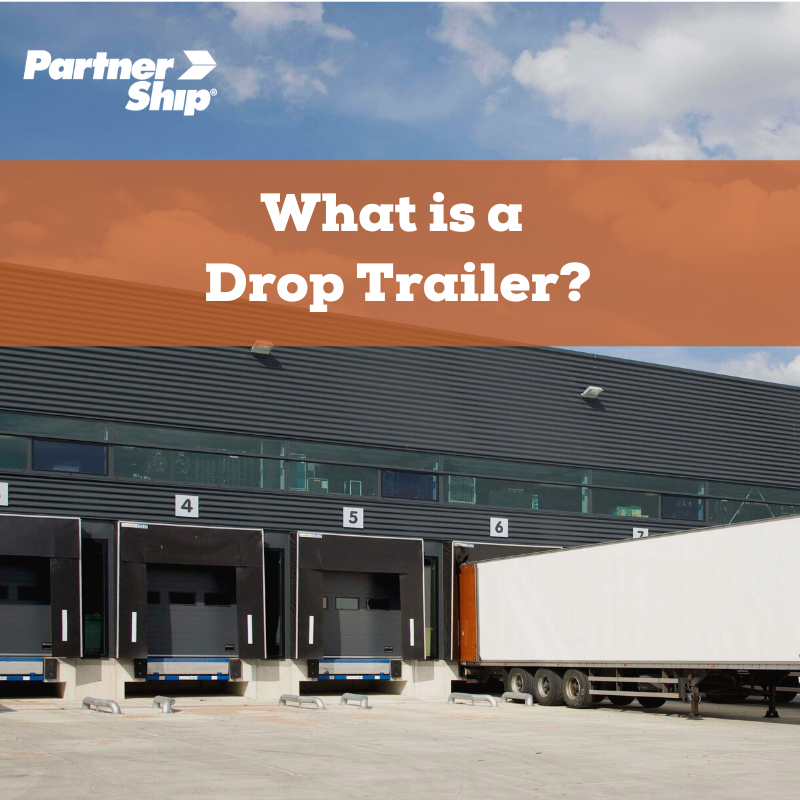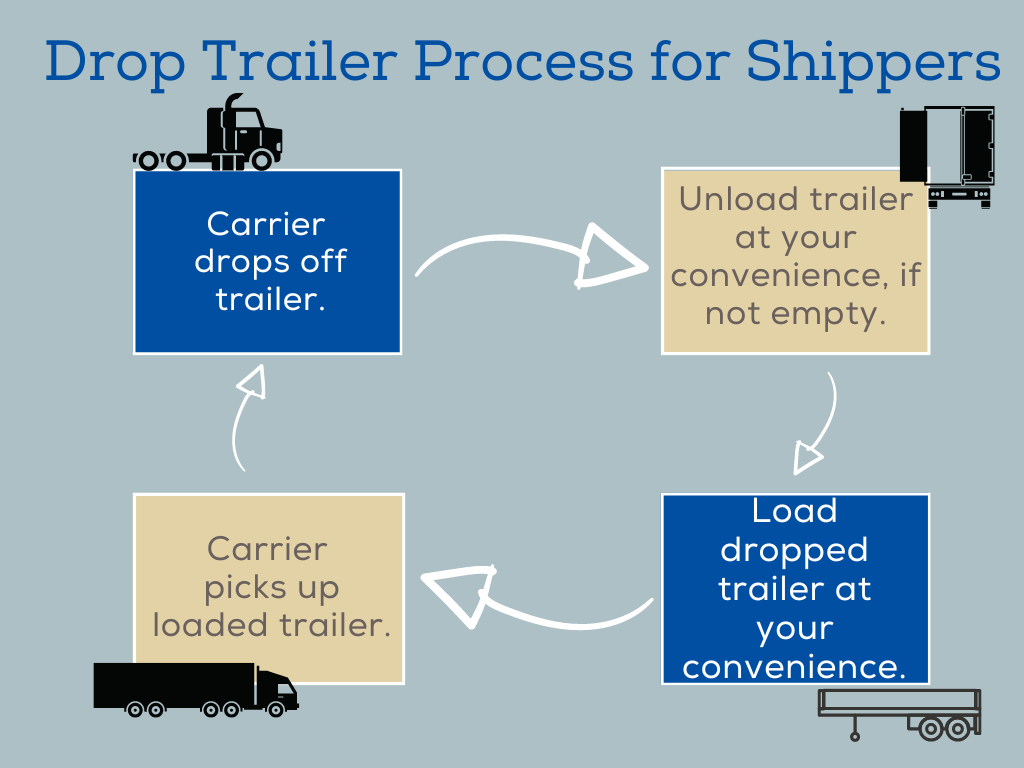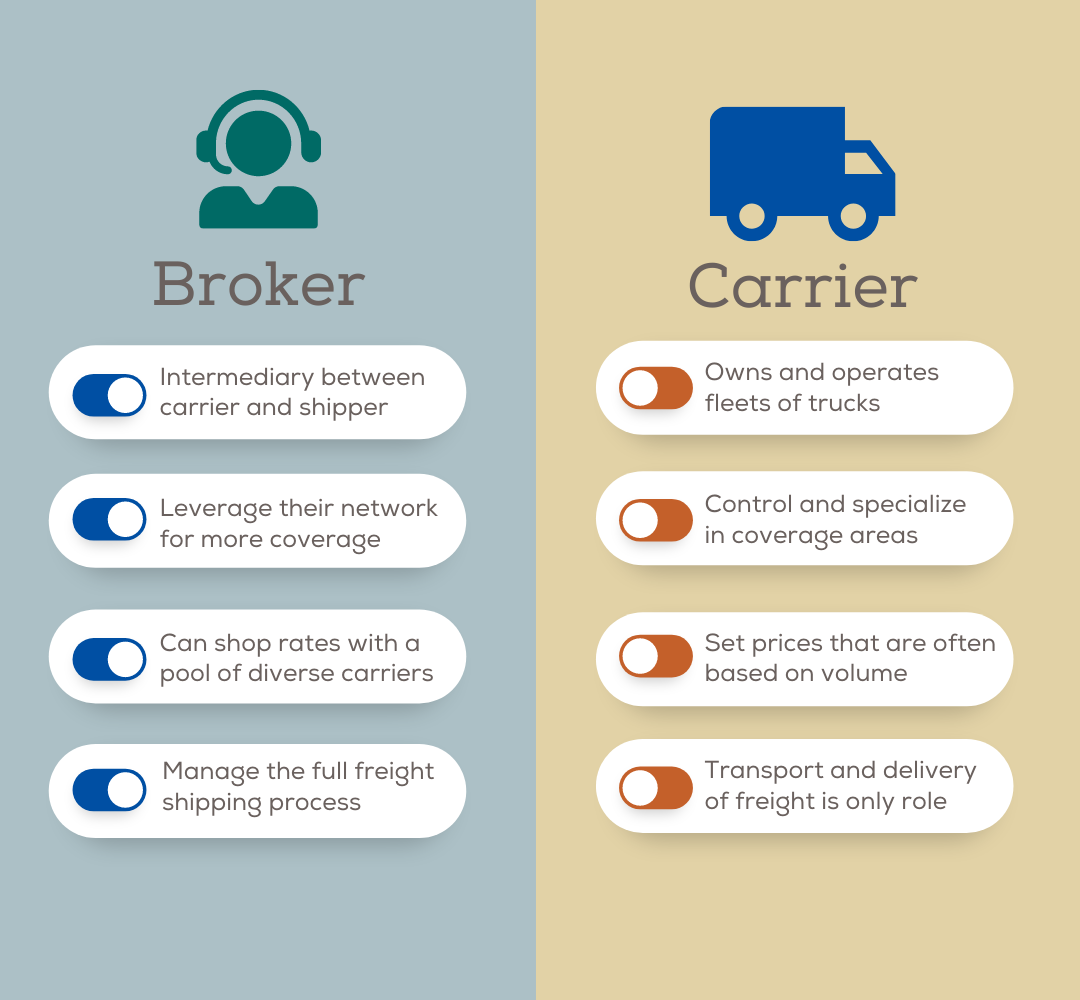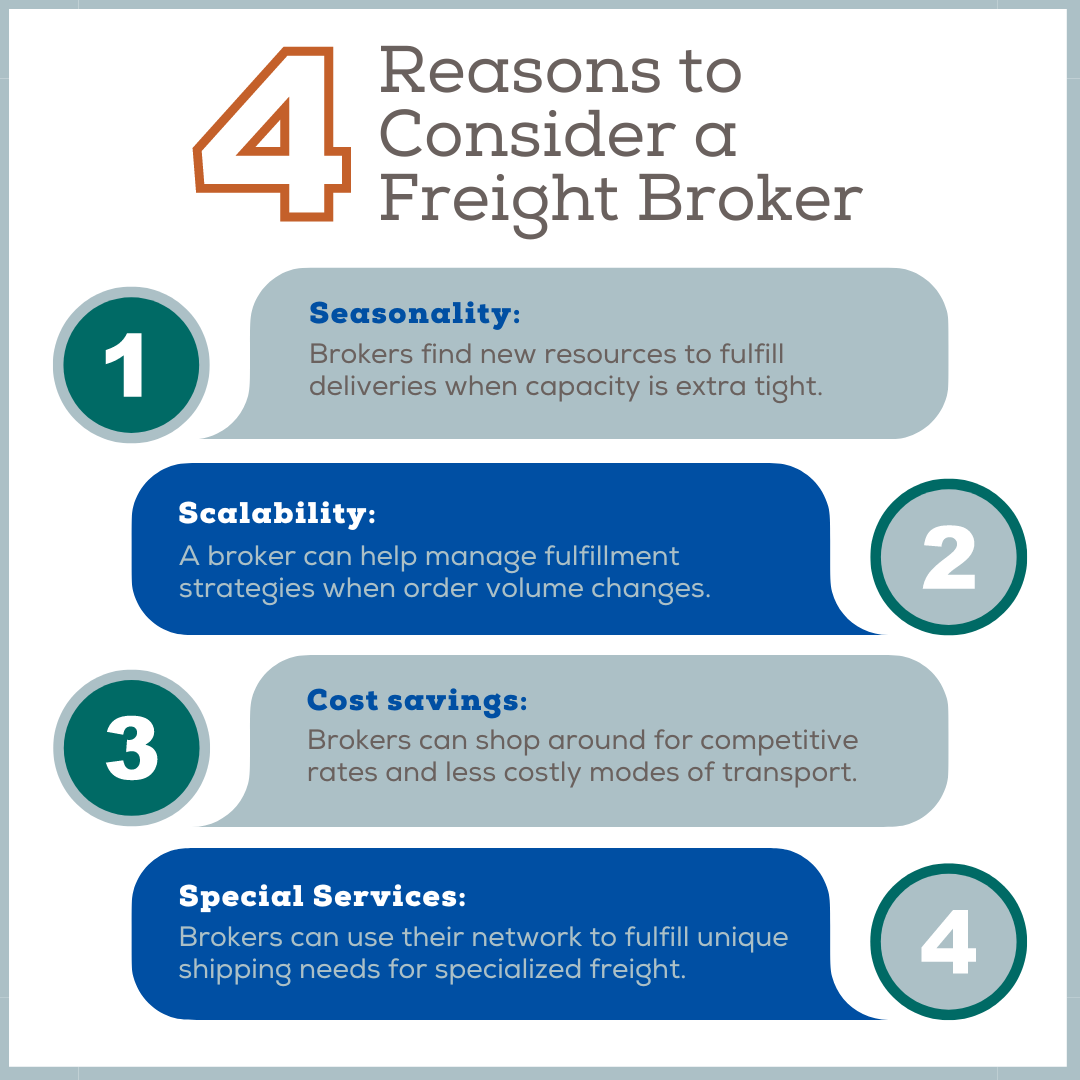the PartnerShip Connection blog
the PartnerShip Connection blog
the PartnerShip Connection blog
the PartnerShip Connection blog
the PartnerShip Connection blog
-
What is a Drop Trailer? Discovering the Advantages and Applications
06/30/2023 — PartnerShip

Is it time for your business to consider a drop trailer and / or drop and hook freight program?
First, let's answer what is a drop trailer? It is when a carrier brings a tractor to the loading dock and picks up a previously loaded trailer. Drop and hook takes drop trailer shipping one step further. A carrier will arrive with an empty trailer to drop, pick up a loaded trailer, and continue on to the destination.
What is a drop trailer used for? Many shippers consider drop trailer programs because of the hours of service rules issued by the Federal Motor Carrier Safety Administration (FMCSA) which are more strictly monitored by the ELD mandate.
Before the change to the hours of service rules, if a driver waited three or four hours or more while their trailer was loaded, they could make up the time by driving more hours. Now, with an ELD required for every tractor, load time and detention is a significant consideration because it cuts into the 14-hour on-duty shift rule.
To illustrate, if a carrier has to drive an hour to the shipping origin, then wait five hours to get loaded, that means he can only drive for 8 hours after leaving for the destination. If he averages 60 mph, he can travel 480 miles. If the same driver picked up a loaded trailer, he could drive 10 hours before reaching the 11-hour driving limit. If he averages 60 mph, he can travel 600 miles.
What is a drop trailer doing for your supply chain? Drop trailer programs help shippers and carriers plan more effectively for deliveries and outbound shipments so it is important for them to align their schedules. Without drop trailers, a carrier must arrive within a narrow appointment window for employees to load or unload the trailer. Depending on how the appointment fits into their on-duty schedule, and considering traffic conditions, weather, breakdowns and other unexpected events, the driver could be forced to wait for hours, or miss the appointment altogether. In these situations, late delivery fees, detention fees, and a negative vendor scorecard are typically the unpleasant results.
Drop Trailer Benefits for Shippers:
- Smoother supply chain operation. You can load or unload a trailer at your convenience or when staffing levels are adequate; no more paying overtime to load or unload when a truck is early or late.
- Great for time-consuming loads, like floor-loaded freight.
- Less congestion in docks, improving overall safety of operations.
- Avoid costly driver or truck detention accessorial charges.
- Higher on-time delivery percentages. On-time freight departure times substantially increase the odds of an on-time arrival.
- Decrease fines. With strict retail Must Arrive By Date (MABD) requirements becoming more common, drop-trailer shipping can help your carrier arrive on time and minimize the fines associated with missing a delivery window.
- Better retailer relationships. When you fulfill MABD requirements, your vendor scorecard improves and you are seen as a more desirable vendor partner.
Drop Trailer Benefits for Carriers:- Better planning. You decide when you pick up (and drop off) trailers.
- No more waiting to pick up a load or be live-loaded; spend more time driving to the destination.
- Great for time-consuming loads, like floor-loaded freight.
- Higher on-time delivery percentages.
 There are a few circumstances of which to be aware when considering a drop trailer program. What is a drop trailer cost? Every trailer that a carrier takes out of over-the-road service is lost revenue, so to recoup it, there will be a cost for a drop trailer, either on the front end or back end (or both). Of course, this cost will pay for itself because there should never be any detention fees.
There are a few circumstances of which to be aware when considering a drop trailer program. What is a drop trailer cost? Every trailer that a carrier takes out of over-the-road service is lost revenue, so to recoup it, there will be a cost for a drop trailer, either on the front end or back end (or both). Of course, this cost will pay for itself because there should never be any detention fees.
Drop trailers should not become warehouses; the maximum time a trailer should sit is a week. In most drop trailer programs, trailers turn two or three times a week. Because of this, produce and perishable goods aren't well suited for drop trailers, since keeping the goods fresh is necessary.Finally, there is a lot of up-front work to implement a drop trailer program. Not all carriers do drop trailers so finding one that does can be time-consuming. Trailers make carriers money so if one of your carriers doesn’t want to drop a trailer, simply look at using a different one.
A drop trailer or drop and hook program is a perfect opportunity to use a freight broker. Working with a broker allows you to tap into their network of carriers and take advantage of their expertise in finding carriers that will drop trailers. The truckload shipping experts at PartnerShip will work with you to find a drop trailer or drop and hook carrier and get you the best freight rates possible. We know the lanes, we know the rates and we will help you ship smarter. Contact us today to learn more about setting up a drop trailer program!
Click to read more... -
Freight Brokers vs. Carriers: What Are the Real Differences?
06/20/2023 — Jen Deming
The freight industry can be a confusing place. It's pretty easy to get lost in terminology, and even experienced shippers can find themselves puzzled by basic questions. For example: what's the difference between a freight broker and carrier?
It turns out there are actually three key distinctions between the two parties, and understanding how each factor affects your load is important for smooth shipping.
Key Distinction #1: Responsibility to shipper
When looking at a freight broker and carrier, it's important to understand the primary responsibility of each party in the physical transportation of your freight.
What is a carrier?
A carrier refers to the company, or operator, that directly handles the transportation of your shipment. Common national carriers include TForce Freight, XPO Logistics, ArcBest, and more. Carriers can specialize in less-than-truckload (LTL), dedicated truckload freight, or even specialized services such as refrigerated or oversized freight equipment.
What is a freight broker?

A freight brokerage is a company that serves as a transportation intermediary rather than directly operating a truck fleet and physically moving your freight. A freight broker's job is to contract available loads with a carrier and find an acceptable rate within a specified time frame according to the shipper. The freight broker cuts down the time and effort it may take for a company to look for its own carriers and may decrease costs by shopping quotes.
Key Distinction #2: Geographical restrictions
Freight carriers and brokerages serve distinct areas in the U.S. and sometimes overseas. Knowing their strongest network locations can guide your business decision.
Where do carriers operate?
Common carriers, like XPO Logistics, primarily move freight loads. They have hubs in high-demand areas offering maximum truck availability and competitive pricing. For regions outside these hubs, they may have limited schedules or collaborate with regional carriers for rural deliveries. These regional carriers are smaller businesses operating within a specific area and have exceptional proficiency within their zone. Essentially, national carriers can deliver anywhere in the U.S., but for remote areas, they might need to involve regional carriers which could result in longer delivery times.
Where do freight brokers operate?
Third-party logistics providers don't need to manage assets or trucks, so they can operate from any location. Many have main offices in popular shipping areas and satellite offices across the country. Some specialize in certain industries, like oversized freight or cross-border shipping. A broker can also focus on building relationships with transportation carriers for increased flexibility and specialized service.
Key Distinction #3: Liability for claims
In damage claims, carriers are generally legally liable due to the Carmack Amendment, while brokers aren't. However, brokers can and should aid in dispute resolution. With blurred lines between the two parties, it's important to explore them in detail.

What is a carrier's liability?
Per the Carmack Amendment, the carrier owns the items while they are being transported. When the carrier agrees to transport something, a deal is made based on the shipper load and count on the bill of lading (BOL). The shipper signs this document, saying that they packed and counted everything correctly. From the moment the goods are picked up until they are delivered, the carrier is in charge. If anything gets lost or damaged, the carrier has to answer for it. If there's a problem, you make a claim with the carrier, not the broker who set up the transportation.
What is a broker's liability?
From a legal perspective, carriers, not freight brokers, are responsible for any freight damage. However, good freight brokers have claims experts who know about shipper rights, liability limits, and claims filing. While carriers must handle damaged freight, brokers have the ethical duty to guide shippers and assist during complex situations like damage or loss claims.
The advantage of using a freight broker
When you work with a quality freight broker, you gain expertise, increase operational flexibility, and add a cost-saving alternative that you may not have when working directly with a carrier. Working with PartnerShip can ensure you have a team in your corner to help you navigate even the most unique shipping challenges.

Click to read more...